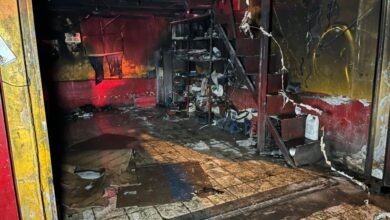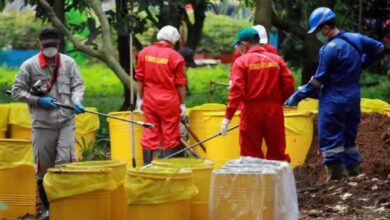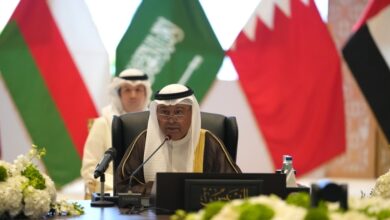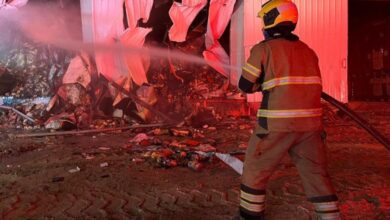
The Israel-Iran conflict has entered an unprecedented phase with direct military confrontations, significant civilian and infrastructural damage, and growing international alarm. With airstrikes on nuclear facilities confirmed, regional leaders issuing stark warnings, and diplomacy sidelined, the prospect of de-escalation appears increasingly distant.
Iran’s Supreme Leader Ayatollah Ali Khamenei is expected to deliver a televised speech shortly, according to Tasnim News Agency. His last appearance was on Friday, immediately after Israeli airstrikes began.
Iranian President Masoud Pezeshkian, in a cabinet meeting this morning, urged national unity in the face of crisis. “If the people stand with us, no problem will endanger the country,” he said. He thanked neighboring countries for their support and asked ministers to remain in contact with them, according to Al-Jazeera.
Meanwhile, Britain has temporarily withdrawn family members of staff at its embassy in Tel Aviv and consulate in Jerusalem due to escalating risks. Core operations, including consular services, continue.
U.S. President Donald Trump has made conflicting statements. On Thursday, he posted that diplomacy with Iran remains a goal, but 14 hours later declared a 60-day deadline had passed. Over the weekend, he alternated between calling for a deal and urging evacuation of Tehran.
In the meantime, the Israeli military spokesman Effie Defrin announced that the Israeli Air Force has carried out 1,100 strikes in Iran over the past five days, claiming it is “operating freely” in Iranian airspace — a first. Defrin also said these actions are part of efforts to “systematically neutralize the nuclear threat.”
The International Atomic Energy Agency (IAEA) confirmed that Israeli airstrikes hit two key Iranian nuclear sites — Tehran Nuclear Research Center; a building manufacturing/testing advanced centrifuge rotors was hit and Karaj Workshop; the two buildings producing centrifuge components were destroyed.
In the face of this Iran’s Ambassador to the UN in Geneva, Ali Bahreini, vowed a forceful response saying, “We will respond seriously and strongly without restraint.”
However, he added, “Diplomacy never ends,” but added Iran no longer trusts the U.S., suggesting Israel’s attack had a “green light” from Washington and accused the U.S. of destroying its own credibility and called on the international community to act.
Israeli Defence Minister Israel Katz intensified rhetoric, claiming Iran’s regime is nearing collapse. He said Iranian “symbols of power are collapsing,” including state media infrastructure, and warned of further strikes.
Earlier, he compared Iran’s Supreme Leader Khamenei to Saddam Hussein, suggesting a similar downfall.
Meanwhile, in the face of civilian impact and unprecedented damage in Israel over 1,300 Israelis are now believed to be living in hotels due to homes rendered uninhabitable; more than 18,000 compensation claims have been filed amid reports confirming Israeli residential and sensitive security sites have been hit — including the first confirmed downing of a Hermes drone inside Iran.
Unlike past conflicts with Hamas or Hezbollah, Israel is facing sustained ballistic missile attacks, causing widespread and unfamiliar disruption to civilian life.
Governments across the region are deeply concerned. While Israel frames the conflict as a path to a “new dawn” with U.S. backing, neighboring countries fear widespread destabilization — especially for Palestinians, who believe their national aspirations may be sacrificed in the process.
Across the Arab and Islamic world, there is mounting horror at ongoing Israeli military actions in Gaza, Lebanon, and Syria, and fears that this escalation could engulf the entire region.


















